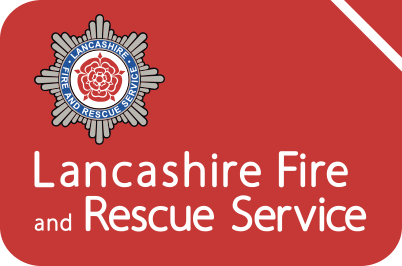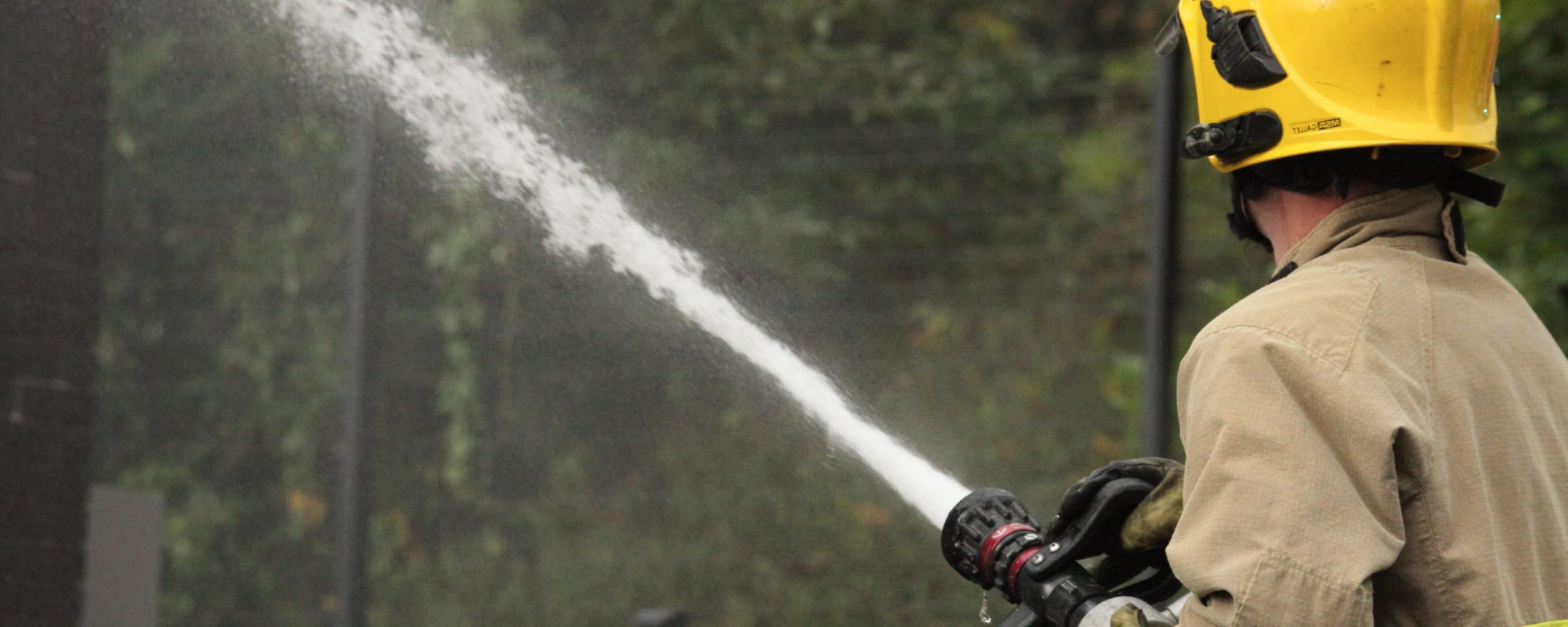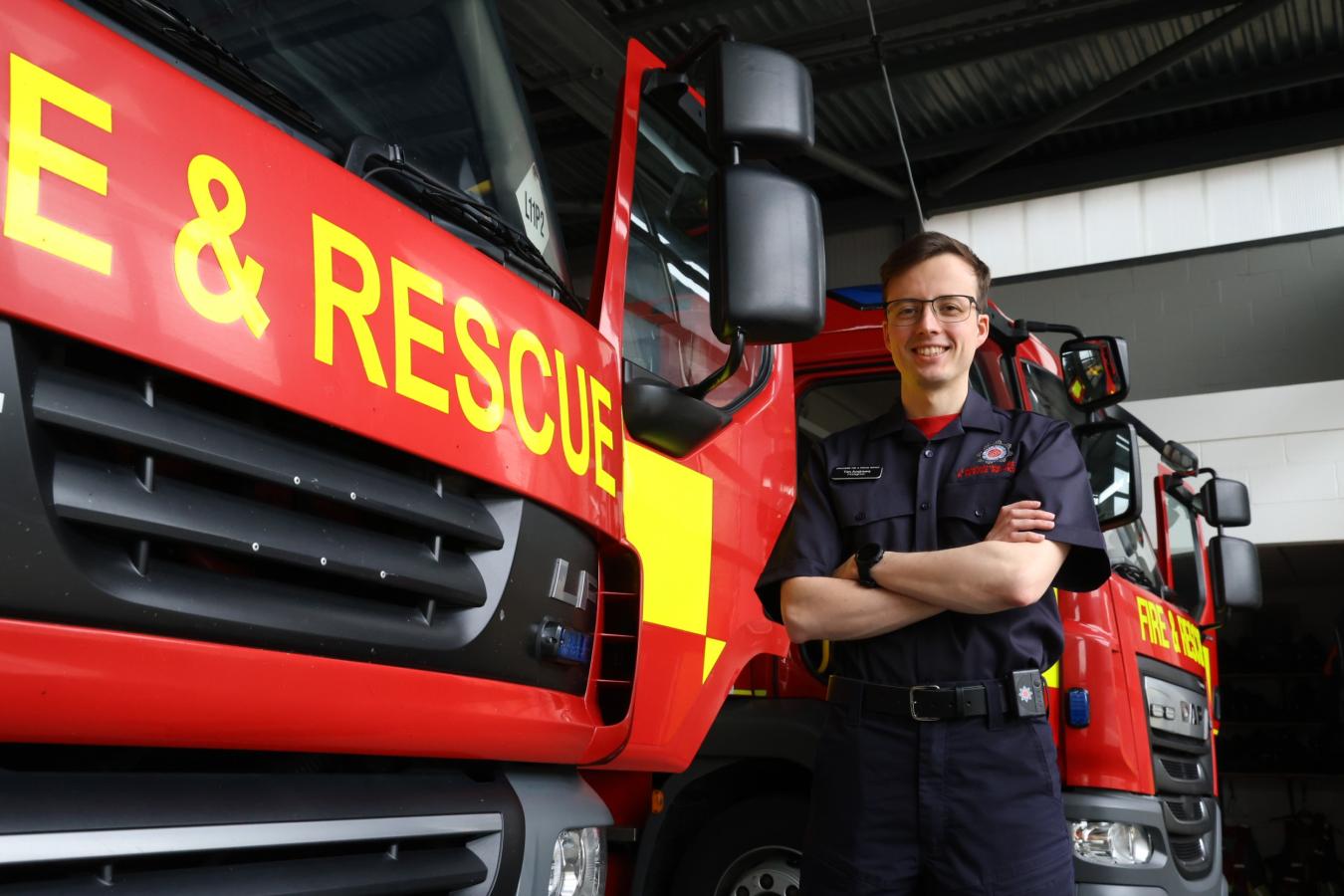Tim is a Project Engineer at a Lancaster based tech firm and an on-call firefighter in Lancaster. He responds to his pager during regular office hours to provide essential daytime cover.
"Being an on-call firefighter is a big commitment, but it’s incredibly rewarding. No two call-outs are ever the same, and that’s what makes it so engaging. It challenges you in unexpected ways and helps you grow — not just as a firefighter, but in your day-to-day job too. I’ve developed skills like staying calm under pressure, thinking on my feet, and working closely with others, which have made me a stronger engineer.
I’m really grateful to my employer for their support and flexibility. Their understanding means I can respond when needed without it impacting my work — in fact, the experience has only added value to what I do. It’s great to know I’m making a difference in the community while continuing to progress in my career.








